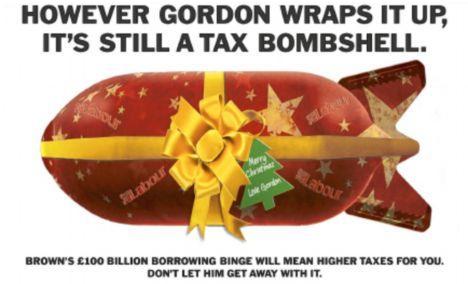One night a short time after New Labour swept to victory in 1997, the Chancellor hosted a party for a handful of close friends. As he put on his coat to leave, one guest remarked, “Great party, Gordon”.
Rumour has it that Brown turned to him with a grim smile. “The Labour Party,” he rumbled. “That was a great party, wasn’t it?”
The central tenet of Tony Blair’s project was the need to siphon off the colouring of Old Labour ideology. He was left with a translucent and electable party that promised not to raise taxes for the middle classes while pledging to pump money into the NHS and leave the financial markets to their own devices. Meanwhile, Blair went about wooing the powerful and wealthy like a hyperactive peacock. It was the first Labour government that could honestly say it was intensely relaxed about people getting filthy rich.
The Pre-Budget Report has been a game changing event. In what The Times briskly branded a “Robin Hood-style budget”, Alistair Darling has dug his fingernails into the upper middle classes and drawn blood. A new 45 per cent tax band for earnings above £150,000 and national insurance increases across the board go against every rule in the Labour electoral book since 1994.
Once again the kaleidoscope has been shaken, and more than ever before the pieces are in flux. Where they will land is anyone’s guess.
The Times’ leader today ran under the simple obituary headline: “New Labour 1994-2008.” George Osborne was keen to do some scythe swinging of his own, announcing: “Stability has gone out of the window, prudence is dead.”
This may be the death of New Labour, but it’s also a study in inevitability. Party politics have returned, breaking through the tarmac of the Blair era like the roots of an oak. In his private diary, Hugo Young once noted that Blair had “deeply alienated people more traditional than he is”, adding: “He has overlooked the degree to which one day he would need the party.” That day has come, although it’s Brown who faces the music.
The battle lines are drawn in a way not seen since 1992, and the tribal drums are banging.



